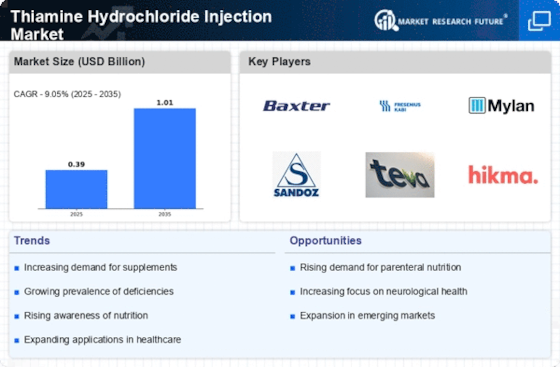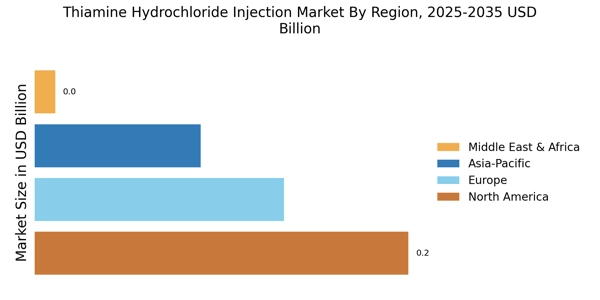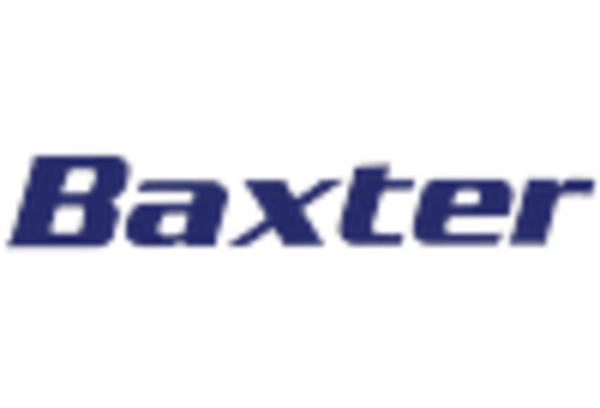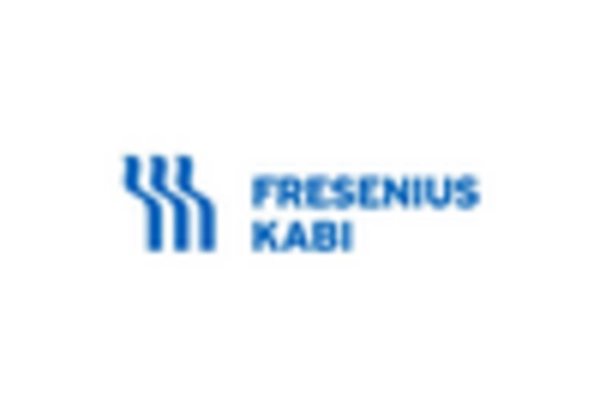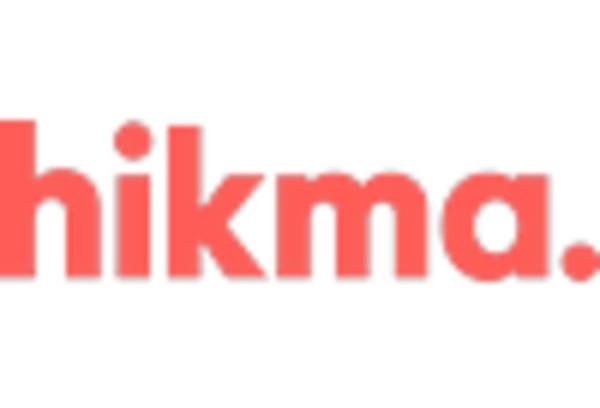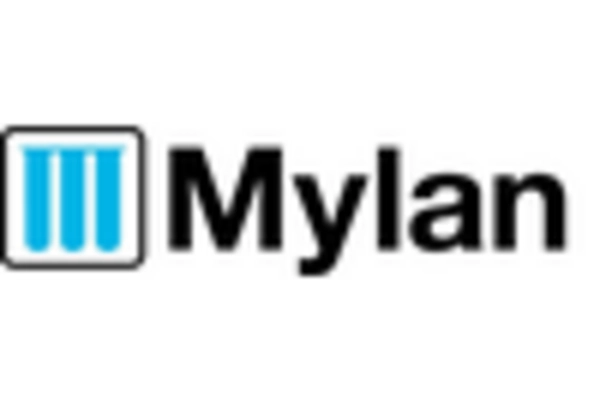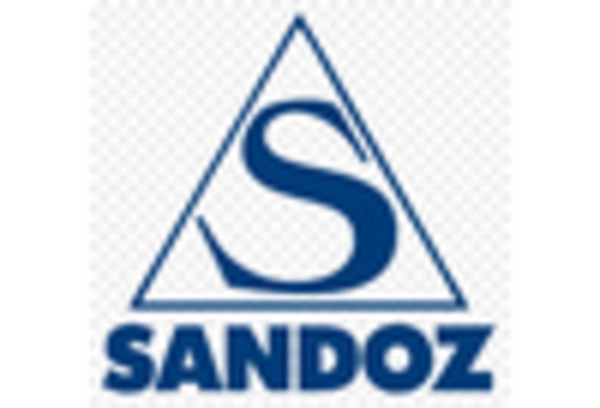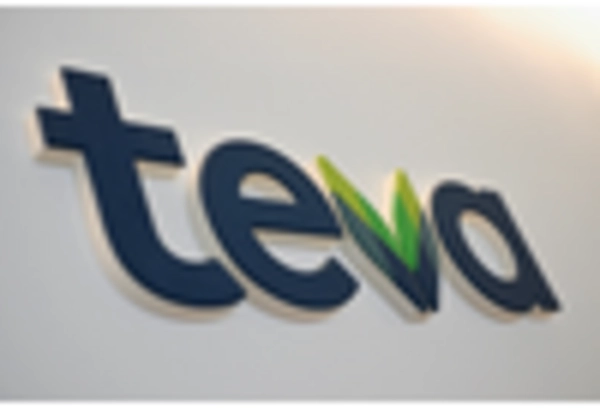Rising Demand in Clinical Settings
The Thiamine Hydrochloride Injection Market is experiencing a surge in demand within clinical settings, particularly in hospitals and specialized clinics. This trend is largely driven by the increasing number of patients requiring intravenous thiamine administration due to various medical conditions. For instance, patients undergoing treatment for alcohol dependence often require thiamine injections to prevent neurological complications. Additionally, the prevalence of metabolic disorders that necessitate thiamine supplementation is on the rise. Market data suggests that the demand for thiamine hydrochloride injections in clinical environments is projected to grow at a compound annual growth rate (CAGR) of approximately 5% over the next few years. This growth is indicative of the critical role that thiamine plays in patient recovery and overall health management.
Growing Incidence of Thiamine Deficiency
The rising incidence of thiamine deficiency, particularly in populations with limited access to balanced nutrition, appears to be a significant driver for the Thiamine Hydrochloride Injection Market. Thiamine deficiency can lead to serious health issues, including Wernicke-Korsakoff syndrome and beriberi. As awareness of these conditions increases, healthcare providers are likely to prescribe thiamine injections more frequently. Reports indicate that thiamine deficiency is prevalent in certain demographics, such as alcoholics and individuals with malabsorption syndromes. This growing recognition of thiamine's role in health maintenance is expected to bolster demand for thiamine hydrochloride injections, thereby expanding the market. Furthermore, public health initiatives aimed at addressing nutritional deficiencies may further enhance the visibility and utilization of thiamine hydrochloride injections.
Regulatory Support for Nutritional Therapies
Regulatory support for nutritional therapies is emerging as a crucial driver for the Thiamine Hydrochloride Injection Market. Governments and health organizations are increasingly recognizing the importance of addressing nutritional deficiencies through medical interventions. This recognition is likely to lead to favorable regulations and guidelines that promote the use of thiamine hydrochloride injections in clinical practice. For instance, health authorities may endorse thiamine supplementation protocols for at-risk populations, thereby increasing the demand for injections. Furthermore, the establishment of reimbursement policies for thiamine injections could enhance their accessibility and affordability, encouraging healthcare providers to incorporate them into treatment regimens. Such regulatory support is expected to create a conducive environment for market growth.
Increased Research and Development Activities
Increased research and development activities in the field of pharmaceuticals are anticipated to significantly impact the Thiamine Hydrochloride Injection Market. Ongoing studies exploring the therapeutic benefits of thiamine in various medical conditions, such as diabetic neuropathy and heart failure, may lead to expanded applications for thiamine hydrochloride injections. As researchers uncover new uses for thiamine, the market could see a diversification of product offerings, catering to a broader range of medical needs. Additionally, advancements in formulation technologies may enhance the efficacy and safety profiles of thiamine injections, further driving market growth. The potential for innovative applications of thiamine underscores the importance of continued investment in research and development within the pharmaceutical sector.
Expansion of Pharmaceutical Distribution Channels
The expansion of pharmaceutical distribution channels is likely to play a pivotal role in the growth of the Thiamine Hydrochloride Injection Market. As more healthcare facilities and pharmacies gain access to thiamine hydrochloride injections, the availability of this essential medication is expected to increase. Enhanced distribution networks, including online pharmacies and telehealth services, may facilitate easier access for patients and healthcare providers alike. This trend is particularly relevant in regions where healthcare infrastructure is developing, as it can lead to improved patient outcomes through timely administration of thiamine injections. Furthermore, partnerships between pharmaceutical companies and distributors may enhance market penetration, thereby driving sales and increasing the overall market size.


